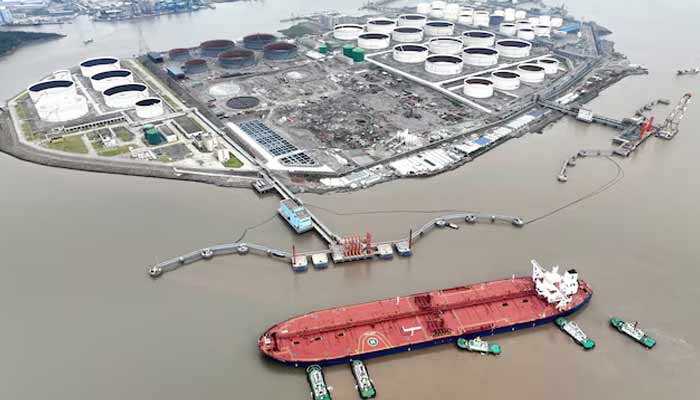Select Language:
Chinese state-owned oil giants have stopped purchasing Russian crude shipped by sea following the U.S. sanctions targeting Moscow’s two largest oil firms, Rosneft and Lukoil, according to several trade sources on Thursday.
Meanwhile, India, the biggest importer of Russian seaborne oil, is expected to significantly reduce its crude imports from Russia to align with U.S. sanctions related to Russia’s invasion of Ukraine.
This decline in demand from Moscow’s primary customers is likely to hurt Russia’s oil revenue and compel other major importers to seek alternative sources, potentially driving up global oil prices.
The major Chinese oil companies—PetroChina, Sinopec, CNOOC, and Zhenhua Oil—are reportedly abstaining from dealing in Russian seaborne crude for the foreseeable future due to fears of sanctions. These companies did not immediately comment.
Although China imports about 1.4 million barrels of Russian oil daily by sea, most of this is purchased by independent refiners, including small-scale operators known as teapots. Estimates on how much state giants buy vary widely—the analytics firm Vortexa estimates their purchases at under 250,000 barrels per day in the first nine months of 2025, while Energy Aspects suggests it’s around 500,000 barrels per day.
Unipec, Sinopec’s trading arm, halted Russian oil imports last week after the UK designated Rosneft, Lukoil, and associated shadow fleet ships and Chinese entities—such as a major Chinese refiner—as targets.
Most Russian oil sales to China are made through intermediaries instead of direct deals, traders say. Meanwhile, independent refiners might pause their Russian purchases to evaluate the impact of sanctions but are still likely to seek ways to continue sourcing Russian crude.
Leading up to the sanctions announcement on Wednesday, premiums for November-loaded ESPO crude dropped to about $1 per barrel over ICE Brent, down from early October levels around a $1.70 premium.
China also imports roughly 900,000 barrels per day of Russian oil via pipeline, primarily to PetroChina, which several traders consider unlikely to be significantly impacted by the sanctions.
India and China are expected to rely on alternative suppliers from the Middle East, Africa, and Latin America, which could lead to higher prices for non-sanctioned oil.







